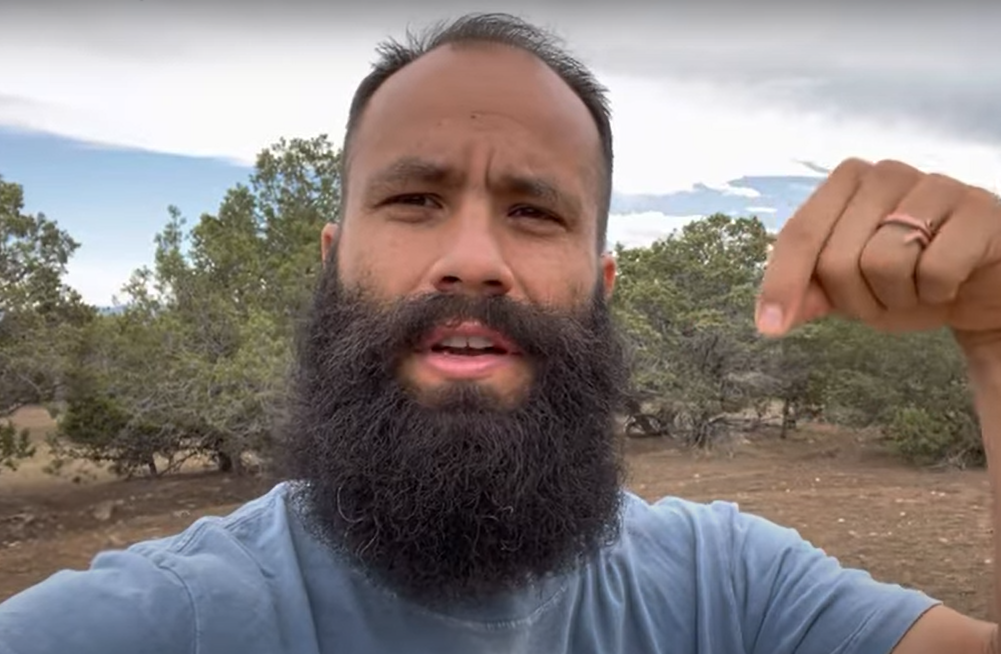
Today, I’ve transcribed a short clip in which “The Freedom Specialist” talks about how he got free from porn addiction. The Freedom Specialist was addicted to pornography for 18 years before it almost cost him his marriage. He was told that his addiction was a disease that he had no control over, that he would always have to live with it, which he could not accept. After studying his issue and experimenting with various healing techniques, he was able to identify the root cause of his addiction, and started investing his energy to addressing that issue. Once that issue was resolved, his coping behaviors–including pornography, binge-eating, and other compulsive behaviors–went away, effortlessly, and he no longer experienced the urges.
The video is short and doesn’t disclose much detail, but it makes a critical point about cause and effect that I think bears repeating. Addiction, or repeat indulgence in a consciously self-destructive behavior, is so often fueled by unresolved emotional issues or trauma (see The Relationship Between Trauma And Addiction (Gabor Mate). People who do not address the root cause of their addiction typically do not get better; get better but do not stay better; or end up swapping out one destructive behavior for another (symptom imperative).
Other people’s experience and wisdom can aid in the process, but ultimately only we can do the deep soul work necessary to get healed. The Freedom Specialist offers coaching services for people seeking freedom from addiction, especially porn addiction. You can look into that on their website (The Freedom Specialist), where they lay out their general formula.
Check out the transcript and video below!
What I found was that it’s not a disease at all. What I found is that it’s not permanent. That, if you really understand what’s happening with your mind and your body, and you pinpoint the exact thing that’s going on. What you’ll find is that you can walk away with those things, and never have it come back—nor even urges come back. That literally, the whole thing is just a thing of the past, as if it were in another person’s life.
The Freedom Specialist
For more, see the complete archive of testimonies.
Transcript:
If your experience has been anything like mine, then you’ve probably been told that things like addiction and depression and anxiety are diseases. They’re things that are not going to go away, that no matter how you manage them, or cope with them, that’s just the way life is going to be.
For me, I was in the middle of an 18-year porn addiction to where I couldn’t control myself or the behavior. Sometimes, I could willpower myself out of it, but when it really hit, I was going back to this thing that I didn’t really want to do. It was not something I wanted to engage in at all, both because of faith reasons [and] because it was not helping. It wasn’t fixing any of my problems, and yet I was constantly going back.
It started causing trouble in my relationships, in my marriage. Where my wife one day was looking at me, telling me, “I don’t think I’m going to stay.” We had four kids at the time. And there I was staring down the possibility of not only dealing with the depressiveness or the overhelm or the burn-out, or stuff I was dealing with normally. But now also, being alone for the rest of my life, because I couldn’t control this one behavior.
Everyone was telling me it’s a lifelong thing. That you’re just going to have to cope with it, and deal with it, and accept that there’s something wrong with you. That was not OK with me. And so I turned my back on everything everyone else was saying, and I decided I was going to figure out what was really going on. And I studied, and I trained in healing arts, a variety of different kinds. And I trained in meditation and yoga, and functional psychology, and all of these different things to try to figure out what is really causing this behavior not to go away–what’s happening to where I don’t have conscious control.
What I found was that it’s not a disease at all. What I found is that it’s not permanent. That, if you really understand what’s happening with your mind and your body, and you pinpoint the exact thing that’s going on. What you’ll find is that you can walk away with those things, and never have it come back—nor even urges come back. That literally, the whole thing is just a thing of the past, as if it were in another person’s life.
Now, what was going on was that pornography, and the depression, and the binging on food, and the other compulsive behaviors I was doing, was a way of me coping with some core issue on the inside. What I learned was that thing was on a mental level, on an emotional level, and on a physical level. And that if I could pinpoint it, in all of those places, and clear it from my system, in all of those places–a whole person approach—then the coping behavior went away on its own. I didn’t have to fight for it. I didn’t have to deal with urges, or anything else like that.

